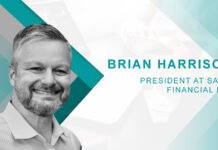1. Tell us about your role in Crunchr?
I’m the founder and CEO of Crunchr. My priorities are building the best team possible and be inspiring with a long-term vision, making sure that everybody is enthusiastic and equipped to outperform. Also, I am developing strategic partnerships and manage our capital strategy.
2. Can you tell us about your journey into this market?
My people analytics journey started 15 years ago when I was still a pension actuary in Amsterdam (Netherlands). Actuaries are mathematicians that can translate uncertain future scenarios into financially based decisions of today. They usually work in the insurance industry.
I was very curious to see if the same techniques could also be applied to the HR space to solve the big disconnect between business and HR. Companies are in a permanent state of transformation, and therefore they need to think scenarios to avoid large layoffs, keep healthy earning models and ensure people stay fit for future work.
As a company, we went through all phases in developing a market for workforce analytics and building our technology and a business model. Highlights were that we were chosen by Gartner as one out of five companies worldwide as Cool Vendor, being featured in The Economist and global strategic partnerships with Mercer and Randstad. I’m incredibly proud of where we stand now.
3. How do you think technology is changing the HR Sector?
Technology nowadays makes already positive impact, especially on the employee experience. For years, most interfaces between people and business were simply awful. With all new HR technology, many of these interactions you can do now via your smartphone.
However, the real business impact (where technology identifies actionable opportunities to increase business performance) has yet to come. There are some examples, see for example this article in The Economist on what employee data can already tell us now.
4. Can you explain how technology has made data and analytics an important tool for successful HR functions?
HR Technology helps to grasp the bigger pictures and trends quickly. Workforce analytics solutions, such as Crunchr do the heavy work: translating millions of data points into insight. It equips HR professions to give powerful answers with confidence to complex questions.
In the old days, business leaders might complain to HR about the ever-increasing high employee turnover. Now, HR can respond in less than 30 seconds “Voluntary turnover is stable over the last 12 months, however in business unit X it is increasing, especially for employees who we just hired. It seems that we have an onboarding problem because most of these failed hires already leave after four months. Let me reach out to the local team to investigate, so we are able to make the right interventions to reduce voluntary turnover.”).
5. How do you think proper data collection, translation, and analysis can help in getting the insights and act as a guide in making strategies?
When good chefs cook, they start with their ‘mise en place’: preparing all ingredients and organising these nicely to be used. This is exactly what HR professionals should do when they want to make an impact with workforce analytics. This is about data governance (structuring, definitions, privacy and security).
Using this organised data helps HR professionals to become a real business partner (read more here). This helps to demonstrate that you are in control over workforce & organisation in the short run and can think scenarios in the long run.
6. How do you differentiate your services from the services offered by your competitors?
I believe that we have a better product-market fit. We have a background in HR, have in-depth domain knowledge and worked for over ten years (before building Crunchr) with companies on workforce analytics projects. We understand like no one else that successful deployment of workforce analytics is an interplay between having access to good data, building analytics capabilities and integrate this in the daily workflow.
We iterated many years on our product market fit to ensure that what we build is also used by our users. The proof is that since the last years, the average session time has doubled, and actual users have more than tripled!
Generic BI tools, such as PowerBI and Tableau, are beautiful to visualise data but don’t solve the underlying problem and don’t scale with the needs of HR. That’s why we win (most of the times).
7. What advice would like to give to the upcoming HRtech StartUps?
It starts with a dream that you want to solve.
How do you want to change the world of HR? This dream slowly develops into a vision which you validate with the market. At the end of this phase, you end up with a Minimum Viable Product (MVP). Take plenty of time to test your product market fit with the market. Startups always talk love stories about ‘pivoting’, but don’t realise that a pivot comes at great cost. Especially when you do this too late.
The proof of a good product-market fit for me is that you developed something where your customers want to pay for. Therefore: tweak your proposition as long as needed to create a “must have” product, not a “nice to have”.
This also shows where many startups fail: they start with the technology (“we want to do something with blockchain”), not with what you want to solve.
8. What technology according to you that will leave its mark in 2019?
I believe that companies see the impact of data in the long run but face daily reality of having poor data quality. So, technology that helps companies to organise and clean data will leave its mark in 2019.
9. What is the vision, on which you and Crunchr are working on?
We want to create and democratise relevant insights for HR to become stronger business partners. Our product will evolve eventually into a decision support system where it identifies opportunities to improve business results or to reduce risks – and suggest actions to HR.
10. What are the major developments you are planning, in recent times?
We’re never finished with developing the product. We spend an insane amount of time and energy on improving & innovating the product. Every other week, we release new functionality to our customers. What we’re working on now I cannot share, but there is a lot of cool stuff in the pipeline. Our efforts are broadly recognised. I’m heading to Japan next week because we are a finalist in a huge global AI competition.
11. Can you tell us about your team and how it supports you?
Currently, we have a team of 30 talents and expect to hire another ten people this year. We’re sorganised in three domains: marketing & sales, product & tech and customer success. They support me with their brains and passion to build our long-term vision.
Something, where I see large companies fail, is that they hire brilliant people and then tell them what to do. That doesn’t work I think. As long as they understand the long-term vision and short term goals, all people should have the freedom to make their own decisions.
12. Which Book are you reading these days?
I don’t have too much time to read non-fiction books. I also don’t enjoy that too much to be honest. What I do like is keeping up with world news, reading 20-minute articles on all sorts of items and scrolling through Reddit for inspiration.
13. We have heard that you have a very joyful work culture, so can you share with us some of the fun pictures of your workplace?



14. Can you give us a glance of the applications you use on your phone?
According to my phone statistics: BBC News, LinkedIn, Mail, Chrome, Jira & Reddit!

Dirk Jonker CEO and Founder, Crunchhr
Dirk Jonker is the founder of total rewards advisory firm Focus Orange and founder & managing director of Workforce Reporting & People Analytics solution Crunchr. Both companies grew fast to over 50 people. For 15 years, he advises companies om how to generate competitive advantage by aligning workforce strategies and execution with operating models using people analytics. Prior to Crunchr, he worked as a consulting actuary in Towers Perrin New York and Amsterdam.












